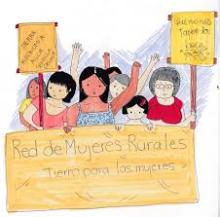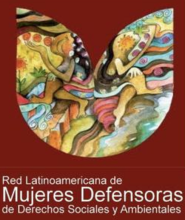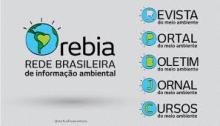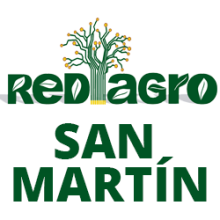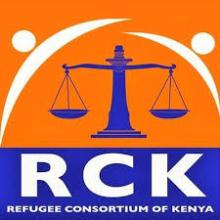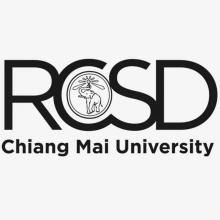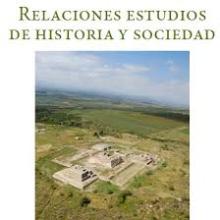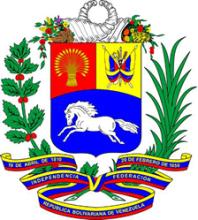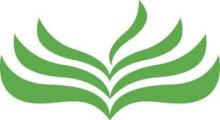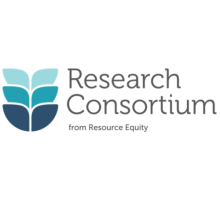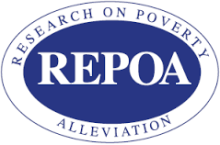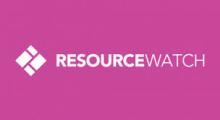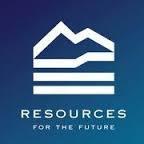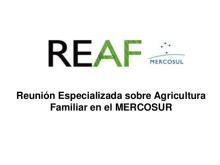A Biblioteca Land Portal inclui recursos de mais de 1.890 provedores de informações nacionais e internacionais. Saiba mais sobre as organizações e instituições que utilizam o Land Portal para partilhar as suas pesquisas, dados e histórias de acesso aberto.
Red de Mujeres Rurales de Costa Rica
La Red de Mujeres Rurales es un espacio organizativo que articula a mujeres del campo, ya sea que formemos parte de grupos u organizaciones de mujeres o de organizaciones mixtas, en defensa de nuestros intereses y derechos.
Red Latinoamericana de Mujeres Defensoras de Derechos Sociales y Ambientales
La red internacional de mujeres nace con el propósito de visibilizar los impactos de la minería sobre las mujeres, visibilizar sus luchas, cuestionar este sistema colonizador de los pueblos, de sus tierras, de las mujeres y de la naturaleza, del voraz saqueo de los recursos minerales para el beneficio económico de las corporaciones mineras.
La interrelación de las mujeres en los distintos niveles y espacios de incidencia a nivel nacional e internacional, así como la identificación de problemáticas específicas a ellas, generó este movimiento en América Latina que se representa en la Red Internacional de Mujeres que resisten a la minería metálica por efectos negativos que provocan en las poblaciones especialmente a este grupo especifico de la sociedad representada en las mujeres. La violación de sus derechos continuamente atropellados por las empresas mineras al llegar a las poblaciones, al constatar la afectación de su entorno, al ser irrumpidos sus espacios de trabajo o familia, la cotidianidad y la cordialidad de sus relaciones familiares alteradas en su ámbito social (los vicios, el alcoholismo, prostitución, violencia familiar, problemas de salud se incrementan) a la llegada de las empresas. Todo esto nos llevó a vincularnos en este espacio.
REDD Monitor
REDD-Monitor aims to facilitate discussion about the concept of reducing deforestation and forest degradation as a way of addressing climate change.
The website was set up as a response to discussions between environmental and social organisations and movements in the North and South. The target audience is anyone involved in REDD discussions – while it is unlikely that you’ll agree with everything written here, REDD-Monitor looks forward to your contributions to the discussions.
Rede Brasileira de Informação Ambiental
A REBIA – Rede Brasileira de Informação Ambiental é uma Associação sem fins lucrativos, independente, sem vínculos partidários ou religiosos, que visa contribuir para a formação e fortalecimento da cidadania socioambiental planetária através da democratização da informação ambiental e da educação ambiental, com uma visão plural e democrática da questão socioambiental e da sustentabilidade, e que se rege por seus Estatutos e pela legislação específica
Rede Interação
A Rede Internacional de Ação Comunitária – Rede Interação é uma OSCIP fundada em Dezembro de 2004 em São Paulo, Brasil. A Rede Interação é a representante brasileira do SDI – Slums Dwellers International, uma rede independente de entidades da sociedade civil e iniciativas populares, com presença em 33 países da África, Ásia e América Latina, que atua para criar cidades inclusivas e inserir a população urbana de baixa renda nas estratégias de desenvolvimento urbano.
Além da atuação ligada ao SDI, a Rede Interação também desenvolve projetos diversos com o poder público, outras ONGs e atores do setor privado, nas áreas de trabalho técnico social, diagnósticos socioeconômicos e mapeamentos comunitários, planejamento urbano e habitação.
A missão da Rede Interação é apoiar e fomentar iniciativas de integração social e de criação de cidades inclusivas, com foco em ações de organização e mobilização comunitária em favelas, assentamentos precários e empreendimentos de habitação popular, oferecendo suporte técnico a diversas iniciativas populares e dos setores público e privado.
Rediagro San Martín
En nuestra región aprobada con la ordenanza N°012-2014-GRSM/CR como espacio de coordinación y articulación del gobierno regional de san Martín con los demás niveles de gobierno en la generación, acceso, difusión y uso de información agraria especializada en beneficio de los distintos grupos de interés especialmente en los pequeños y medianos productores agrarios haciendo uso de los medios adecuados.
Reformas Guatemala
Soñamos con una Guatemala en paz y con prosperidad. Somos ciudadanos que decidimos involucrarnos porque queremos un mejor país para nuestras familias.
REFUGEE CONSORTIUM OF KENYA
Commonly referred to as ‘Haki House’ (Right House) by refugees, Refugee Consortium of Kenya is a national non-governmental organization that was established in 1998. RCK’s mission is to promote and protect the rights and dignity of refugees, asylum seekers, IDPs and other forced migrants in Kenya and the wider East African region. It was established as a response to an increasingly complex and deteriorating refugee situation in Kenya and the region.
RCK’s core mandate is to: provide legal aid services and psycho-social counseling; engage in advocacy for policy change and to develop legislation in line with international instruments regarding the management of refugees and other forced migrants; and to raise awareness regarding the plight and rights of the vulernable groups through research and information dissemination.
Over the years, RCK has grown to address the protection needs of other forced migrants, including the internally displaced persons, victims of trafficking, stateless persons and other persons of concern.
Refugee Studies Centre
The Refugee Studies Centre (RSC) was established in 1982, as part of the University of Oxford's Department of International Development (Queen Elizabeth House), in order to promote the understanding of the causes and consequences of forced migration and to improve the lives of some of the world’s most marginalised people. Its philosophy is to "combine world-class academic research with a commitment to improving the lives and situations for some of the world’s most disadvantaged people".
Regional Center for Social Science and Sustainable Development - Chiang Mai University
The Regional Center for Social Science and Sustainable Development (RCSD) was established in 1998 at the Faculty of Social Sciences, Chiang Mai University, Thailand in response to the need for integration of social science and natural science knowledge in order to gain a better understanding of sustainable development issues in upper mainland Southeast Asia. RCSD has, since that time, striven to become a truly regional center for sustainable development issues, linking graduate training and research to development policy and practice. It does this by drawing upon the three-decade long research and teaching experience of Chiang Mai University in fields such as resource management, highland agricultural systems, social science and health, environmental impact assessment and ethnic and gender relations.
RCSD was initially supported by a Ford Foundation endowment grant to the amount of US$ 1 million, and this Fund has allowed RCSD to implement and run international graduate programs, non-degree training courses and other support activities whose aim to promote information sharing among scholars in the Mekong Region. Additional support from the Ford Foundation through scholarship funding for Vietnamese and Chinese students - to attend the M.A. program at RCSD and also PhD. scholarships for staff of the Faculty of Social Sciences, has helped significantly enhance human capacity in the Mekong Region, in the fields of social science and development. Recent scholarship support from the Heinrich Bőll Foundation has also enabled RCSD to reach-out to Burmese students who would otherwise have little chance of progressing on to higher education.
Tremendous political, economic and social change in the Mekong Region resulting from recent, regionalized development is a new challenge for RCSD, and will mean having to take another look at the region - both across geo-political boundaries and as an interconnected entity -from diverse and multiple perspectives. Timely and significant support from the Rockefeller Foundation, for the recently implemented 'Program on Knowledge and Educational Enhancement in the Mekong Region' (PKEEMR), has allowed RCSD to pro-actively work and collaborate with partner institutions in the Mekong Region, the aim being to promote understanding, information sharing and mutual learning regarding emerging issues, and to link these issues to a deeper and broader conceptual understanding of the regionalized context within which they are set, as well as understand their impacts at the local level. The PKEEMR includes a comprehensive range of activities, such as collaborative research, visiting scholar and non-degree research fellowships, inter-university collaborative workshops, regional and international conferences and also the writing and issuing of publications.
Regional Centre for Development Cooperation
Based in one of India’s least ‘developed’ states, we address environment and people-centred issues - from forest, water and land rights, livelihoods and mining issues, to climate change and disaster risk reduction. Our proactive and informed approach has brought RCDC acclaim and transformed lives in Odisha. Our grassroots interventions, research and expertise all inform our policy-level work, where we raise the debate and influence key decision-making in order to benefit our communities.
Since 1993, RCDC (Regional Centre for Development Cooperation) has been leading work focused on natural resource management and livelihoods for the development of Odisha. We understand that a holistic approach is necessary and we now address a broad spectrum of environment and people-centred issues - from forest, water and land rights, livelihoods and mining issues, to climate change and disaster risk reduction.
The principle underlying our operations is that the appropriate management of natural resources is necessary to address current development problems in a lasting manner, and that the local communities - with their traditional knowledge and stakeholder interest - are the best managers of these resources.
Regional Centre for Mapping of Resources for Development
The Regional Centre for Mapping of Resources for Development (RCMRD) is an intergovernmental organization and currently has 20 Contracting Member States in the Eastern and Southern Africa Region. Their mission is to strengthen the member States and our stakeholders’ capacity through Generation, Application and Dissemination of Geo-information and Allied Technologies for sustainable development.
Regional Learnig and Advocacy Programme (REGLAP)
The Regional Learning and Advocacy Programme or REGLAP (which was known previously as the Regional Pastoral Livelihoods Advocacy Project) is funded by ECHO (European Commission Humanitarian Office) and aims to reduce the vulnerability of pastoral communities through policy and practice change in the Horn and East Africa.
REGLAP also seeks to promote the integration of humanitarian assistance with development interventions through disaster risk reduction (DRR) among governments, donors and national and international CSOs (civil society organisations).
The third cycle of the project has been running since July 2010 with a primary focus on Ethiopia, Kenya and Uganda.
Mission
REGLAP aims to reduce the vulnerability of pastoral communities to drought and failed rains through policy and practice change in the Horn and East Africa.
Project objectives and focus
The overall objective of REGLAP is directly in-line with the Priority for Action 1 of the Hyogo Framework that seeks to ensure that DRR is a national and local priority with a strong institutional basis for implementation.
The project works in four key areas:
- Civil society advocacy capacity: Increase civil society capacity for documenting and sharing lessons learnt and conducting advocacy work around DRR.
- Knowledge gathering and lessons learnt: Harness and package existing knowledge, good practice and lessons learnt from community based actions and disseminate to key practitioners.
- Good DRR practice: Build a shared understanding of what constitutes good DRR practice and promote improved implementation.
- Policy dialogue: Utilise leaming to influence the development and implementation of national and regional disaster risk reduction and related policies.
Regional Universities Forum for Capacity Building in Agriculture
About
The Regional Universities Forum for Capacity Building in Agriculture (RUFORUM), established by ten Vice Chancellors in 2004, is a consortium of 55 African universities operating within 22 countries spanning the African continent. RUFORUM is coordinated by a Secretariat hosted by Makerere University in Kampala, Uganda. The organisation evolved from its predecessor, the Forum on Agricultural Resource Husbandry (FORUM) program of the Rockefeller Foundation. RUFORUM is registered as an International Non-Governmental Organisation (NGO) and has mandate to oversee graduate training and networks of specialization in the Common Market for Eastern and Southern Africa (COMESA). In July, 2014, RUFORUM signed a cooperation agreement with the African Union to support the implementation of the new African Union for Science, Technology and Innovation Strategy for Africa, 2024 (STISA 2024).
RUFORUM supports universities to address the important and largely unfulfilled role that universities play in contributing to the well‐being of small‐scale farmers and economic development of countries throughout the sub‐ Saharan Africa region.
Our Vision
RUFORUM envisions ‘a vibrant agricultural sector linked to African universities which produce high-performing graduates and high-quality research responsive to the demands of Africa’s farmers for innovations and able to generate sustainable livelihoods and national economic development.
Our Mission
RUFORUM’s mission is to strengthen the capacities of universities to foster innovations responsive to demands of small-holder farmers through the training of high quality researchers, the output of impact-oriented research and the maintenance of collaborative working relations among researchers, farmers, national agricultural research institutions and governments.
Relaciones Estudios de Historia y Sociedad
Relaciones Estudios de Historia y Sociedad es una revista de historia, ciencias sociales y humanidades que publica trabajos originales, inéditos y evaluados por pares, ya sea en la forma de artículos, ensayos o presentación de documentos además de reseñas de libros. Con enfoque en la realidad mexicana y sus nexos latinoamericanos, anima el diálogo multidisciplinar y las perspectivas interdisciplinarias y comparativas que permitan una mejor comprensión del pasado y del presente de nuestras realidades sin menoscabo de otras conexiones globales. La revista está dirigida a un público académico internacional de especialistas interesados en las ciencias sociales, humanas y disciplinas afines.
Relaciones Estudios de Historia y Sociedad es una publicación trimestral (invierno, primavera, verano, otoño) de El Colegio de Michoacán, A.C. (CPI-CONACYT), fundada en 1980 por Luis González y González. Cuenta con una versión impresa con tiraje de 750 ejemplares más separatas (ISSN 0185-3929) y una versión electrónica de acceso abierto (ISSN 2448-7554) mediante la plataforma OJS, con los números más recientes. Además, todo el contenido histórico se puede consultar en el repositorio digital histórico. Relaciones publica normalmente textos en español, pero acepta textos en portugués, francés e inglés con la opción de traducirlos o publicarlos en su lengua original. La revista es financiada con fondos públicos asignados por la federación mediante el proyecto “E003. Inversión científica, desarrollo e innovación” del presupuesto anual de El Colegio de Michoacán, A.C., diseñado específicamente para las actividades de divulgación y difusión del conocimiento científico.
ReliefWeb
ReliefWeb is a specialized digital service of the United Nations Office for the Coordination of Humanitarian Affairs (OCHA).
We provide reliable disaster and crisis updates and analysis to humanitarians, so they can make informed decisions and plan effective assistance.
Our editorial insight, combined with access to the latest technology,allows us to provide innovative, reliable and informative products and services on a continuous, global basis.
ReliefWeb has three main functions:
-
Collect: We collect updates and analysis from more than 4,000 global information sources around the clock.
-
Deliver: Our editors identify and deliver the content most relevant to ReliefWeb's global audience. This content includes country and disaster reports, maps, info-graphics, job announcements and learning opportunities and events of interest to humanitarians.
-
Enable: As part of our commitment to humanitarians worldwide, we develop new information products and services that enable humanitarian partners to analyze context and situations and make better decisions.
Repórter Brasil
Missão
Identificar e tornar públicas situações que ferem direitos trabalhistas e causam danos socioambientais no Brasil visando à mobilização de lideranças sociais, políticas e econômicas para a construção de uma sociedade de respeito aos direitos humanos, mais justa, igualitária e democrática.
Quem somos
A Repórter Brasil foi fundada em 2001 por jornalistas, cientistas sociais e educadores com o objetivo de fomentar a reflexão e ação sobre a violação aos direitos fundamentais dos povos e trabalhadores no Brasil. Devido ao seu trabalho, tornou-se uma das mais importantes fontes de informação sobre trabalho escravo no país. Suas reportagens, investigações jornalísticas, pesquisas e metodologias educacionais têm sido usadas por lideranças do poder público, do setor empresarial e da sociedade civil como instrumentos para combater a escravidão contemporânea, um problema que afeta milhares de pessoas.
República Bolivariana de Venezuela
El Poder Ejecutivo Nacional en Venezuela es representado por el Presidente de la República, el Vicepresidente Ejecutivo, los Ministros, el Procurador General de la República y los demás funcionarios que determinen la Constitución y las leyes.
El Presidente de la República, el Vicepresidente Ejecutivo y los Ministros, reunidos conjuntamente, integran el Consejo de Ministros. El Presidente de la República Bolivariana de Venezuela es el Jefe del Estado y del Ejecutivo Nacional, en cuya condición dirige la acción del Gobierno.
Fuente: Wikipedia
Republican Scientific Agricultural Library of the State Agrarian University of Moldova
The Republican Scientific Agricultural Library of the State Agrarian University of Moldova (Biblioteca Republicană Ştiinţifică Agricolă a Universităţii Agrare de Stat din Moldova) is a university library and national information and documentation center in agricultural science.
IRAS SAUM is the Institutional Repository in Agricultural Sciences of the State Agrarian University of Moldova that collects, preserves and provides access to articles published in the scientific journals, annals, conference and workshop papers, doctoral theses, educational materials created by academic community. IRAS is included in OpenDOAR, ROAR and DuraSpace Registry.
Research Consortium
Launched in 2018, the Research Consortium, by Resource Equity, is a powerful hub for the collection, sharing, and exchange of knowledge on how to effectively advance women’s land rights. We identify gaps in knowledge and help develop a common agenda for research so that learnings can more easily be compared, shared, and applied.
Research Foundation for Governance in India
Research Foundation for Governance: in India (RFGI) is an Ahmedabad-based think-tank that aims to research, promote, and implement various reforms to improve the legal and political process in Gujarat and across India. The organization conducts research on key issues in law and governance and hosts public events in order to raise awareness, particularly among the youth who are often disengaged from the democratic process. RFGI also acts as a consultant in the implementation and development of Government reforms.
The Foundation is a non-party, neutral and independent Foundation and does not support or endorse any political candidate/party or extreme political ideology.
Research on Poverty Alleviation
REPOA was formed in 1994 in Tanzania with the mandate to contribute to the alleviation of poverty in its multiple dimensions through research and capacity building. Over time, REPOA’s mandate has expanded beyond alleviating poverty to encompass growth and socio-economic transformation for poverty reduction.
REPOA’s STRATEGIC PLAN FOR 2015-2019
The experience from implementation of the 2010 - 2014 strategic plan, the as well as recent developments and concerns in national, regional and global economies have informed the development of REPOA’s new five-year strategic plan for 2015-2019. REPOA continues to focus on socio-economic transformation for poverty reduction through inclusive development.
Our Vision
To be a leading research institution in the production of knowledge that will contribute to improving the lives of people in Tanzania.
Our Mission
To facilitate and undertake research, training and outreach.
Objectives
During the next five years, REPOA will:
I. Strengthen the capacity of the intellectual resource (producers and users of knowledge)
II. Undertake, facilitate and encourage strategic research to influence policy
III. Facilitate and inspire stakeholders to utilize research findings
Outcome areas
REPOA will deliver its program under four strategic outcome areas:
1. Knowledge for better policy results generated
2. Knowledge is shared, disseminated and utilized
3. Capacity of researchers and research users enhanced
4. Programs are efficiently and effectively delivered
Core Values
Quality: Quality will be demonstrated in all REPOA activities. Well-considered methodologies will be applied in our work to ensure rigour and excellence. We will communicate clearly and creatively to connect with our diverse audiences.
Integrity: REPOA conducts its business transparently. Employees and associates shall not engage in activities which could cause conflict of interest. All business chains at REPOA shall be conducted in a manner that minimizes risk and maintains the good reputation of the organization and its stakeholders.
Inclusiveness: REPOA values contributions from all people and shall not discriminate on the basis of gender, ethnicity, religious background, or political or other affiliations or views.
Accountability: All employees and associates at REPOA shall expressly demonstrate commitment to the mission and objectives of the organization. REPOA promotes teamwork in our day-to-day activities but encourages individual responsibility and accountability for activities for which employees and associates are directly responsible.
Innovation: REPOA recognizes that for continuous improvement innovation is essential. All employees and associates shall exercise their optimal intellectual capabilities to learn and improve the ways things are done. REPOA shall provide space and opportunities for all to apply innovative solutions to fulfill our mission in the most efficient and effective ways.
Funding
Our primary sources of funding are from Development Partners, collaborative projects and commissioned work from local and international organizations. REPOA also receives funding from the Think Tank Initiative that is administered by the International Development Research Centre (IDRC) of Canada.
ResearchGate
ResearchGate is built by scientists, for scientists.
It started when two researchers discovered first-hand that collaborating with a friend or colleague on the other side of the world was no easy task.
Founded in 2008 by physicians Dr. Ijad Madisch and Dr. Sören Hofmayer, and computer scientist Horst Fickenscher, ResearchGate today has more than 14+ million members. We strive to help them make progress happen faster.
Our mission
Our mission is to connect the world of science and make research open to all.
Reseau de lutte contre la faim au Cameroun
RELUFA works in Cameroon with local communities through Capacity buildings, Conducting Studies and restitution of recommendations to stakeholders, Mobilization of affected local communities and CSOs.
RELUFA has as mission to combat systemic problems generating poverty, hunger and economic, social and environment injustices. This is done through two programs : Extractive Industries, Land and Food Justice
Programs
- Extractive Industries
In this program, RELUFA has identified as objectives:
- To ensure that the extractive sector in Cameroon contributes to the development of local communities;
- Ensure that national and local governments manage the natural resources of Cameroon in a transparent, fair and responsible manner.
To achieve these objectives, RELUFA:
- Conduct monitoring and advocacy on issues raised by the host communities of extractive projects;
- Monitor the impact of projects on the local communities;
- Facilitate exchanges between affected communities;
- Advocate for transparency and responsible management of extractive industries revenues for poverty alleviation;
- Monitor the activities of extractive industries operators in Cameroon;
- Monitor the Extractive Industries Transparency Initiative and RELUFA is one of the founding member of the Cameroon Coalition of “Publish What You Pay”;
- A Member Kimberley Process implementing committee in Cameroon.
- Land and Food Justice
This program seeks to:
- Document, raise awareness and denounce the negative impacts of large scale land concessions in Cameroon;
- Contribute to the improvement of transparency in land transactions in Cameroon;
- Support and equip local communities deprived of their land in the defense of their property rights;
- Supporting communities in the Far North of Cameroon in the management of available food stocks through our community grain banks;
- Mobilize people and support advocacy for better agricultural policies,
- Contribute to the promotion of the right to food in Cameroon.
RESOLVE
Mission
RESOLVE builds strong, enduring solutions to environmental, social, and health challenges. We help community, business, government, and NGO leaders get results and create lasting relationships through collaboration. RESOLVE is an independent non-profit organization with a thirty-eight year track record of success.
History
RESOLVE was founded in 1977 to promote the effective use of collaboration and consensus building in public decisions and to help people with diverse interests engage in dialogue. RESOLVE helped institutionalize the use of dispute resolution techniques in the policymaking process, particularly in the U.S., and it helped create a new field—one that today includes thousands of practitioners. RESOLVE continues to support critical policy initiatives and works to advance new learning, best practices, and ethics across the dispute resolution field.
RESOLVE Today
During its first thirty years, RESOLVE helped create a new field—applying conflict resolution to natural resource, environmental, and public health issues. Today, RESOLVE works with partners in the U.S. and internationally to design innovative, sustainable solutions to the 21st century’s toughest natural resource, environmental, and public health challenges. We work to support healthy people and communities, clean air and water, resilient ecosystems, smart energy, sustainable development and solutions to natural resource conflicts. Our work advances new learning, best practices, and ethics for our partners and throughout our networks.
RESOLVE can help you identify, develop and test sustainable solutions; develop collaborative approaches and programs; strategically analyze and address issues; increase your capacity to get results through training and mentoring; resolve disputes and manage conflicts; and take advantage of the latest collaborative technology. Contact us to explore how RESOLVE’s conflict mediation and collaborative services and programs can help your organization achieve results.
Resource Equity
Resource Equity is a women-run and women-centered nonprofit organization that focuses exclusively on legal issues specific to gender equity in land and natural resources around the world.
Women-Focused, Community-Minded
When women have equitable rights to land and natural resources, they transform their entire communities for the better. With over forty years of collective experience, we engage in comprehensive field research, legal and evidence reviews, constituent interviews, and qualitative analysis that ensures the experiences, perspectives, and needs of women are always centered.
Expert Advocacy and Guidance
Through our collaborative relationships with international NGOs, national governments, and in-country specialists, we identify, develop, and recommend social and policy changes that result in the real-world, meaningful advancement of women’s rights. We also run LandWise, a repository of laws which govern rights to land and property for women.
Women’s Land Rights Institute
Through our innovative, cross-cultural online courses, we train practitioners around the globe in effective techniques, approaches, and best practices in women’s land and natural resource rights. As many of our students are often one of the few practitioners in their country, the Institute is building a deep network of in-country experts who collaborate with each other across continents.
Global Reach
We have worked on women’s land and resource issues worldwide, including in Africa (Burkina Faso, Cabo Verde, Ethiopia, Ghana, Kenya, Liberia, Madagascar, Morocco, Rwanda, Tanzania, Uganda); Asia (China, India, Vietnam); South America (Peru); and Eastern Europe and Central Asia (Azerbaijan, Bulgaria, Kosovo, Kyrgyzstan, Russia, Tajikistan, Turkmenistan, Uzbekistan). We have worked for the World Bank, MCC, USAID, GIZ, DFID, the FAO, Ford Foundation, Care International, and many others.
Foundational Work
Our team has produced essential reporting and analysis focused on the field of women's land and resource rights. Here are a few key pieces that guide our way:
- What Works for Women's Land and Property Rights? What we know and what we need to know.
- Women's Land Tenure Security: Conceptual Framework
- Starting with Women Toolkit
Interested in learning more? Check out our other Practice Guides and Evidence Briefs.
Learn more about how you can work with us by visiting our website: resourceequity.org
Resource Watch
More data are available today than ever before. Yet too often policymakers, business leaders, and analysts cannot access the data they need to make informed decisions about the environment and human well-being.
That’s why WRI and over 30 partners built Resource Watch, a dynamic platform that leverages technology, data, and human networks to bring unprecedented transparency about the planet right now.
Resource Watch features hundreds of data sets all in one place on the state of the planet’s resources and citizens. Users can visualize challenges facing people and the planet, from climate change to poverty, water risk to state instability, air pollution to human migration, and more.
Resource Watch is currently in Beta, and we’re dedicated to growing it and making it stronger every day. We will be regularly adding new data sets, functionality, and blogs. If you see anything that could be improved, please let us know.
Resources for the Future
Resources for the Future (RFF) is an independent, nonpartisan organization that conducts rigorous economic research and analysis to help leaders make better decisions and craft smarter policies about natural resources and the environment.
RFF was the first think tank devoted exclusively to natural resource and environmental issues and helped create the field of environmental and natural resource economics. Since 1952, it has provided decisionmakers with the tools to improve the way policy choices are made, strengthening both the environment and the economy. Although RFF is located in Washington, DC, its research scope comprises programs in nations around the world.
RFF at a glance:
- Recognized as independent and nonpartisan
- Focused on the economics of environmental and natural resource policy
- Trusted by public, private, and nonprofit leaders
- Located in Washington, DC, only minutes away from the White House and Capitol Hill
- Committed to intellectual excellence and practical solutions
- Respected for providing nonproprietary, publicly available research
Mission
RFF’s mission is to improve environmental and natural resource policymaking worldwide through objective social science research of the highest caliber.
Vision
RFF envisions a world where environmental and economic decisions in the public and private sectors are made with a full understanding of the potential implications for present and future generations and the world in which they live.
Reunión Especializada de Agricultura Familiar del MERCOSUR
La Reunión Especializada de Agricultura Familiar del MERCOSUR (REAF) es un espacio de encuentro entre productores familiares, organizaciones e instituciones rurales de la región, funciona desde 2004 con el objetivo de generar un marco de políticas públicas regionales para la agricultura familiar.
Es reconocida como uno de los espacios más dinámicos del proceso de integración regional, se ha convertido en un ámbito de discusión y generación de políticas, de integración solidaria y participativa, que aproxima las poblaciones rurales para superar las asimetrías a partir del diálogo político entre representantes de los gobiernos y de la sociedad civil.
La creación de la REAF ha sido una expresión del reconocimiento del MERCOSUR de la dimensión socioeconómica y la importancia política de la agricultura familiar. Se trata de una experiencia singular en el contexto regional, ya que basa en el diálogo político entre representantes de los gobiernos y de la sociedad civil, en la construcción de iniciativas y posiciones a partir de la sinergia entre los espacios nacionales y el espacio regional, así como, en la valorización del intercambio y la reflexión conjunta.

